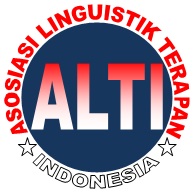Representation Of The Turkish Government in Palestinian-Israel War News On Hürriyet.com: A Discourse Analysis
DOI:
https://doi.org/10.46961/mediasi.v6i1.1566Abstract
This study analyzes the representation of the Turkish government in news published on Hürriyet.com during May 2024, following the Gaza events of 7 October 2023. Using Norman Fairclough's critical discourse analysis, the research examines text (micro), discursive practice (meso), and social practice (macro) dimensions. At the micro level, the study identifies the use of formal diplomatic terms like güven mektubu (letter of credentials) and büyükelçi (ambassador), as well as emotionally charged diction and complex sentence structures that blend formality with criticism of Israeli policies. At the meso level, the online platform facilitates broad information dissemination to shape public opinion and bolster Turkish diplomacy under Erdoğan’s leadership. At the macro level, the coverage reveals a bias favoring Palestine and critiquing Israel, reflecting Türkiye’s political stance. The findings highlight Hürriyet.com's role in portraying Türkiye as a supporter of human rights and international justice, reinforcing its positive image domestically and globally.
Downloads
Published
How to Cite
Issue
Section
Citation Check
License
Copyright (c) 2025 Raisa Alatas, Fathul Qorib

This work is licensed under a Creative Commons Attribution-NonCommercial 4.0 International License.
You are free to:
- Share — copy and redistribute the material in any medium or format for any purpose, even commercially.
- Adapt — remix, transform, and build upon the material for any purpose, even commercially.
- The licensor cannot revoke these freedoms as long as you follow the license terms.















